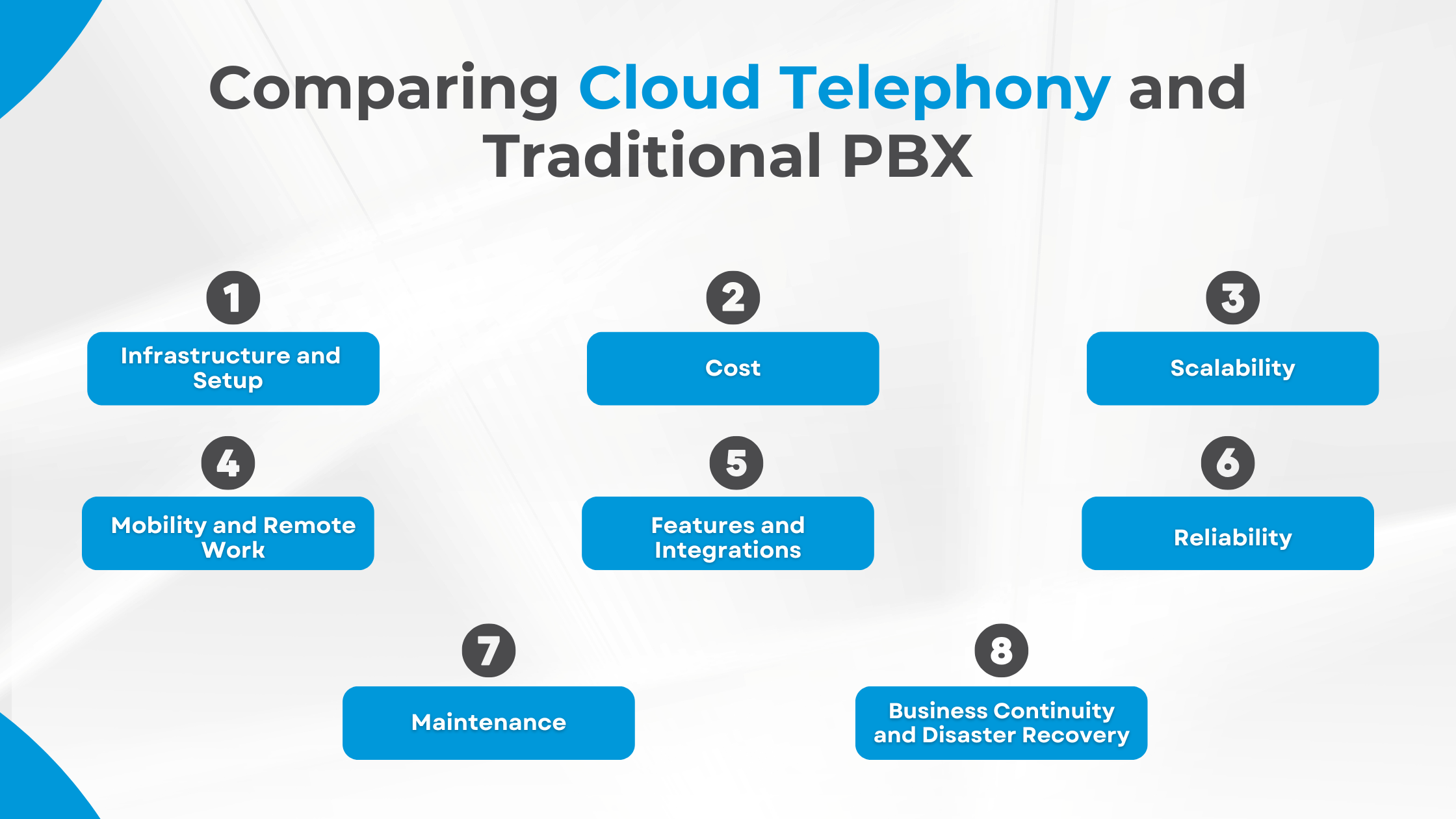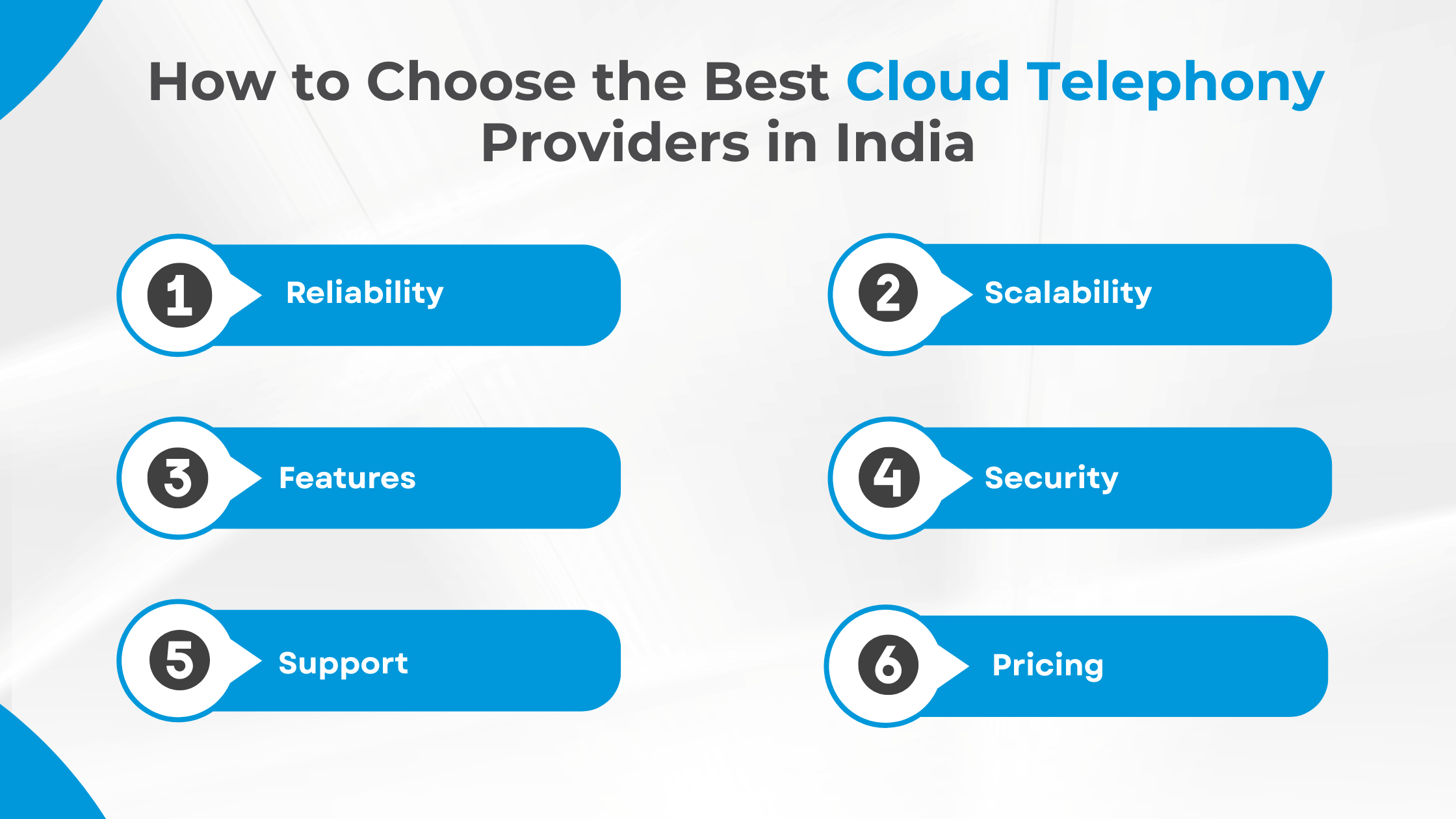Communication is the backbone of every business, regardless of its size or industry. Whether you’re a startup, a mid-sized company, or an established enterprise, having the right communication system can determine how efficiently you connect with clients, customers, and team members. Over the years, the way businesses handle voice communication has evolved from bulky analog systems to advanced digital platforms.
Today, the most common debate is between cloud telephony and traditional PBX (private branch exchange) systems. Each has its strengths, but the decision depends on your business needs, budget, and long-term goals. If you are evaluating solutions like Cloud Telephony in India or looking for the best cloud telephony providers in India, companies such as Kommuno are leading the way with scalable and affordable solutions designed for modern businesses.
In this blog, we’ll dive deep into what both systems offer, their advantages and disadvantages, and how you can decide which one is the right fit for your organization.
A PBX, or Private Branch Exchange, is an on-premise telephone system that connects internal phones within a company and manages inbound and outbound calls through physical phone lines. Traditional PBX systems are hardware-driven, often requiring servers, handsets, cables, and a dedicated IT team for maintenance.
Businesses have used PBX systems for decades because they provide reliable and consistent voice communication. While PBX technology has evolved to include IP-based systems (IP PBX), the core principle remains the same: the infrastructure is owned, managed, and housed within the business premises.
Cloud telephony is a modern communication system that moves traditional phone infrastructure to the cloud. Instead of bulky hardware and wiring, the system is managed by a third-party provider who hosts the telephony services on secure servers. All you need is an internet connection and a device (computer, mobile, or IP phone) to make and receive calls.
Cloud telephony is highly flexible and is gaining popularity among startups, SMEs, and enterprises in India because of its scalability and affordability. A cloud telephony solution in India eliminates the need for heavy upfront investments while offering advanced features like analytics, call recording, and CRM integration.
Remote access from anywhere with internet connectivity

Let’s break down the comparison into critical areas so you can clearly see which solution is better suited for your business.
Winner: Cloud Telephony
Winner: Cloud Telephony
Winner: Cloud Telephony
Winner: Cloud Telephony
Winner: Cloud Telephony
Winner: Tie (PBX for offline reliability, Cloud Telephony for modern uptime guarantees)
Winner: Cloud Telephony
Winner: Cloud Telephony
India is witnessing a communication revolution. With the rise of hybrid work and the increasing need for customer-centric service, more businesses are adopting Cloud Telephony in India. Here are some reasons driving this growth:
Despite the growing appeal of cloud telephony, traditional PBX systems are still relevant in some scenarios:
Cloud telephony is ideal if:
For many, Kommuno’s cloud telephony is not just a communication tool but also a customer engagement solution that drives sales and retention.

If you’re leaning towards cloud telephony, the next step is to find the right provider. With several options available, choosing the best cloud telephony providers in India requires careful consideration:
While PBX systems served businesses well in the past, the future clearly belongs to cloud-based communication. Kommuno’s cloud telephony is not just about voice calls; it’s about creating a seamless communication ecosystem that integrates voice, data, and customer engagement tools.
As more businesses in India embrace digital solutions, the demand for reliable and scalable cloud telephony solutions in India will continue to rise. For organizations focused on growth, efficiency, and customer experience, cloud telephony offers the best balance of cost, convenience, and capability.
The debate between Cloud Telephony vs. traditional PBX boils down to one key question: Do you want to stick to legacy systems or embrace the future of business communication?
Traditional PBX systems may still be suitable for businesses with limited internet access or industries that require strict control. However, for most companies, especially startups, SMEs, and expanding enterprises, cloud telephony is the smarter choice. It provides flexibility, scalability, and advanced features without heavy upfront investments.
When evaluating your options, explore the best cloud telephony providers in India to find one that matches your business needs. With the right partner, you can transform communication into a strategic advantage that fuels growth and strengthens customer relationships.
If you are looking to adopt a modern solution, Kommuno stands out as one of the best cloud telephony providers in India, offering scalable, feature-rich, and reliable communication services tailored for growing businesses.
Elevate Your Business Game with Kommuno – The best way to stay connected to customers!
Copyright ©2024 All Rights Reserved | Kommuno Technologies Pvt Ltd
Copyright ©2024 All Rights Reserved | Kommuno Technologies Pvt Ltd